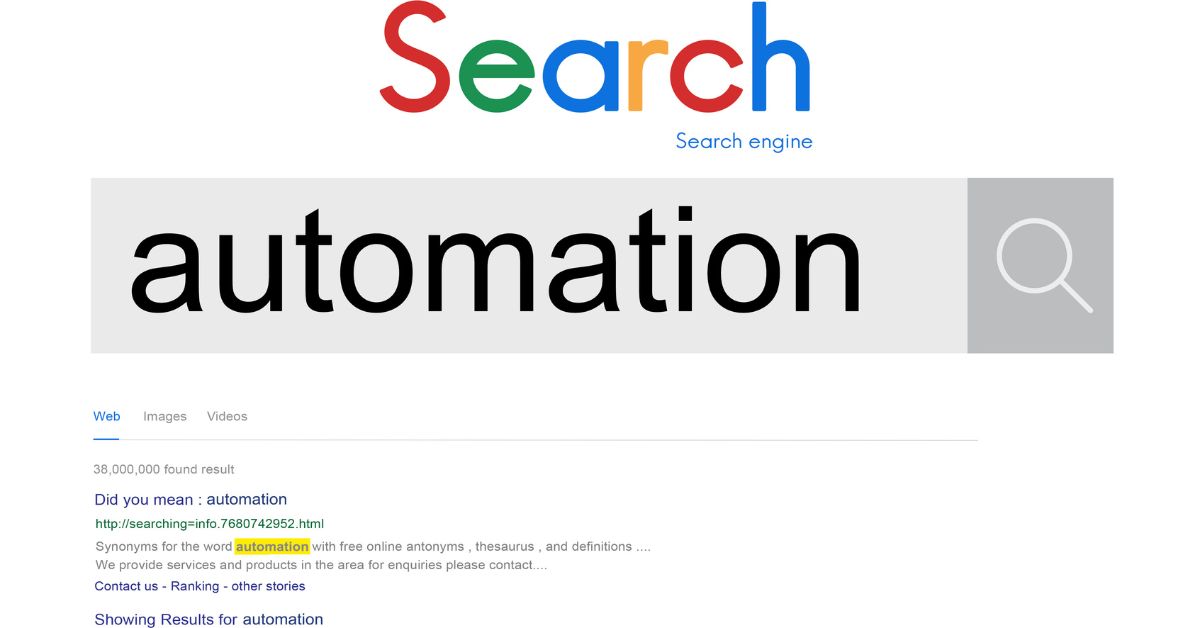No, Internet Explorer is not a search engine. It is a web browser that allows users to access the internet. Many people confuse web browsers with search engines. Browsers, like Internet Explorer, help you navigate the web. Search engines, like Google, help you find information online. This confusion is common, especially for those who may not be tech-savvy. Internet Explorer was once a popular choice for browsing the web.
It played a significant role in the early days of the internet. However, as technology evolved, many users moved to other browsers. Understanding the difference between a browser and a search engine is key. This post will clarify these terms and help you understand their functions better.
Internet Explorer Basics
Is Internet Explorer a search engine? The answer is no. Internet Explorer is a web browser, not a search engine. It helps users access the internet and view websites. Understanding the basics of Internet Explorer is important for anyone using a computer. This section covers its history and key features.
History Of Internet Explorer
Internet Explorer (IE) was created by Microsoft. It first launched in 1995 as part of Windows 95. Over the years, it became one of the most popular web browsers. Here are some key points in its history:
- 1995: Internet Explorer 1.0 released.
- 1996: Internet Explorer 3.0 introduces support for HTML 3.2.
- 1999: Internet Explorer 5.0 offers features like RSS feeds.
- 2001: Internet Explorer 6.0 launches with Windows XP.
- 2015: Microsoft releases Windows 10 and Edge browser.
Internet Explorer faced tough competition from other browsers like Chrome and Firefox. Many users found IE slow and not user-friendly. Microsoft stopped supporting Internet Explorer in 2022. They encourage users to switch to Microsoft Edge. The following table highlights the versions of Internet Explorer:
| Version | Release Year | Key Features |
|---|---|---|
| 1.0 | 1995 | Basic web browsing |
| 3.0 | 1996 | HTML 3.2 support |
| 6.0 | 2001 | Improved user interface |
| 11.0 | 2013 | Enhanced security features |
Key Features Of Internet Explorer
Internet Explorer had several features that made it popular. Some of these features include:
- User Interface: Simple and easy to navigate.
- Tabs: Open multiple pages in a single window.
- Security: Phishing filter to protect users.
- Compatibility View: View older websites properly.
- Favorites: Save and organize favorite websites.
Internet Explorer also supported add-ons. These added more functions like toolbars and plugins. It had a built-in search box for quick access to search engines. Some users liked its integration with Windows. The browser was easy to use for beginners.
Despite its features, Internet Explorer had challenges. Slow loading times were common. Compatibility issues with some websites also arose. Users gradually moved to faster browsers. Microsoft Edge now serves as its replacement.
Search Engine Functionality
Many people wonder whether Internet Explorer is a search engine. Understanding this topic requires knowledge of what a search engine does. A search engine helps users find information on the web. It uses a system to gather and organize data. Internet Explorer, however, is a web browser. Its main job is to display web pages. It does not have the same functionality as a search engine.
What Is A Search Engine?
A search engine is a tool that helps people find information online. It searches the internet for relevant content based on user queries. Here are some key features of search engines:
- Indexing: Search engines store information from websites.
- Ranking: They determine which websites are most relevant.
- Query Processing: They analyze user queries to provide the best results.
Popular search engines include:
| Search Engine | Launch Year | Market Share |
|---|---|---|
| 1998 | 92% | |
| Bing | 2009 | 3% |
| Yahoo! | 1994 | 1% |
Search engines help users find articles, videos, images, and more. They are essential for navigating the vast information available on the web. Without search engines, finding specific content would be difficult.
How Search Engines Work
Search engines operate using several steps. First, they send out bots to crawl the web. These bots visit websites and gather information. Then, this data gets stored in a large database called an index.
When a user types a query, the search engine processes it. It looks through the index for relevant results. The search engine uses algorithms to rank these results. Factors that influence ranking include:
- Relevance: How well does the content match the query?
- Quality: Is the content informative and trustworthy?
- Popularity: How many users visit the site?
After processing the query, the search engine displays results. Users see a list of links to websites. They can click on these links to access the information they need. This process happens in seconds.
Search engines also provide additional features. These include images, news, maps, and shopping results. Users can filter results to find exactly what they want. Understanding how search engines work helps users make better searches.
Internet Explorer Vs. Search Engines
Many people wonder, “Is Internet Explorer a search engine?” This question often arises due to the confusion between web browsers and search engines. Internet Explorer is a web browser. It helps users access the internet. Search engines, like Google or Bing, find and display information on the web. Understanding the difference between these two is essential for effective internet use.
Browser Vs. Search Engine
A web browser and a search engine serve different purposes. Here are key differences:
- Web Browser: A tool to access websites. Examples include Internet Explorer, Chrome, and Firefox.
- Search Engine: A service to find information online. Examples include Google, Bing, and Yahoo.
Browsers display web pages. They allow users to enter website addresses or URLs. Search engines help find those addresses and content within websites. Here’s a simple table to clarify:
| Feature | Web Browser | Search Engine |
|---|---|---|
| Purpose | Access websites | Find information |
| Examples | Internet Explorer, Chrome | Google, Bing |
| User Input | URL or search bar | Keywords or phrases |
In summary, Internet Explorer is a browser. It does not perform the functions of a search engine. Users need both to navigate the web effectively.
Role Of Internet Explorer In Searching
Internet Explorer plays a role in the searching process. Users open Internet Explorer to reach search engines. It acts as a gateway to the internet. Here’s how it works:
- Open Internet Explorer.
- Type a search engine URL, like www.google.com.
- Enter search terms in the search box.
- View search results.
Internet Explorer allows users to save favorite search engines. This makes access easy. Users can set a default search engine. Here are some features that help with searching:
- Favorites: Save frequently used search engines.
- Search Bar: Quick access to searching from the browser.
- History: View previously visited sites for easy reference.
While Internet Explorer is not a search engine, it supports users in finding information online. It connects users to search engines, enabling effective searching.
Common Misconceptions
Many people confuse Internet Explorer with a search engine. This misunderstanding is common. Internet Explorer is a web browser, not a search engine. Understanding this difference helps clear up confusion. Let’s explore these misconceptions further.
Is Internet Explorer A Search Engine?
Internet Explorer (IE) is a web browser developed by Microsoft. It allows users to access and view websites. A search engine, like Google or Bing, helps users find information on the internet. Here are some key differences:
- Function: A browser displays web pages. A search engine finds web pages.
- Examples: IE, Chrome, and Firefox are browsers. Google, Bing, and Yahoo are search engines.
- Usage: Use a browser to go online. Use a search engine to search for specific content.
To illustrate the differences:
| Feature | Internet Explorer | Search Engine |
|---|---|---|
| Type | Web Browser | Search Tool |
| Purpose | Access Websites | Find Information |
| Example | Internet Explorer |
In summary, Internet Explorer is not a search engine. It is simply a tool to browse the internet.
Confusion With Bing
Many users mistakenly believe Internet Explorer is the same as Bing. This confusion arises because both products are from Microsoft. Yet, they serve different purposes.
Bing is a search engine. It helps users find websites and information on the internet. Internet Explorer, on the other hand, is a platform to access those websites.
Here are some facts to help clarify:
- Ownership: Both are owned by Microsoft.
- Function: Bing searches for information. Internet Explorer displays it.
- Access: You can use Bing through Internet Explorer or any browser.
To further differentiate:
| Feature | Internet Explorer | Bing |
|---|---|---|
| Type | Web Browser | Search Engine |
| Primary Use | Browse Websites | Find Information |
| Access Point | Opens Sites | Returns Search Results |
Understanding these roles is vital. Users can maximize their internet experience by using each correctly.
User Experience
Internet Explorer is a web browser, not a search engine. Understanding this distinction is important for a good user experience. Browsing the web with Internet Explorer can feel different compared to modern browsers. It influences how users find information. This section will explore navigating with Internet Explorer and the search options it offers.
Navigating With Internet Explorer
Navigating with Internet Explorer can be straightforward, but it requires some familiarity. Users find the interface simple but outdated. Here are some key features:
- Address Bar: Type web addresses directly.
- Favorites: Save favorite sites for easy access.
- Tabs: Open multiple web pages in one window.
Below is a table showing the basic navigation features:
| Feature | Description |
|---|---|
| Home Button | Quickly returns to your homepage. |
| Back and Forward Buttons | Navigate through your browsing history. |
| Refresh Button | Reload the current page. |
Despite its simplicity, some users may face challenges. Older systems may run slowly. Security risks also exist. Users should stay cautious while browsing. Internet Explorer lacks some modern features, which can limit the experience.
Search Options Available
Search options in Internet Explorer are basic but functional. Users can search directly from the address bar. This feature is convenient, but limited. Here are the main search options:
- Default Search Engine: Users can set a default search engine.
- Search from the Address Bar: Type queries directly into the address bar.
- Search Suggestions: Basic suggestions may appear as you type.
Users can change their default search engine easily. Here is how:
- Open Internet Explorer.
- Go to Tools and select Internet Options.
- Click on the Programs tab.
- Select Manage Add-ons.
- Choose your preferred search provider.
While these options exist, they may not be as effective as modern browsers. Users often find better search experiences elsewhere. Internet Explorer’s lack of advanced features limits search flexibility. Many users prefer more updated browsers for a richer experience.
Alternatives To Internet Explorer
Internet Explorer is not a search engine. It is a web browser used to access the internet. Users often look for alternatives to Internet Explorer, as it has become outdated. Many modern browsers offer better performance, security, and features. This section explores popular web browsers and leading search engines that can enhance your online experience.
Popular Web Browsers
Many browsers are available today, each with unique features. Here are some of the most popular web browsers:
- Google Chrome: Known for its speed and user-friendly interface.
- Mozilla Firefox: Offers strong privacy settings and customization options.
- Apple Safari: Optimized for Apple devices, focusing on efficiency and battery life.
- Microsoft Edge: The successor to Internet Explorer, with improved performance and features.
- Opera: Includes a built-in ad blocker and VPN for better online security.
Here’s a quick comparison of these popular browsers:
| Browser | Speed | Privacy | Customization |
|---|---|---|---|
| Google Chrome | Fast | Moderate | High |
| Mozilla Firefox | Fast | High | High |
| Apple Safari | Fast | Moderate | Low |
| Microsoft Edge | Fast | Moderate | Medium |
| Opera | Fast | High | Medium |
Choosing the right browser depends on your needs. Some prioritize speed, while others focus on security or customization. Explore options to find what works best for you.
Leading Search Engines
Search engines help users find information online. While Internet Explorer does not offer a search engine, several popular options exist. Here are the leading search engines:
- Google: The most widely used search engine. It provides accurate results quickly.
- Bing: Microsoft’s search engine, known for its image search and rewards program.
- Yahoo: Offers news, email, and a search engine with unique features.
- DuckDuckGo: Focuses on user privacy and does not track searches.
- Ask.com: Provides answers to questions through a Q&A format.
Each search engine has its strengths. Google leads in speed and features, while DuckDuckGo excels in privacy. Explore these options to find the search engine that meets your needs.
Future Of Internet Explorer
Is Internet Explorer a search engine? No, it is a web browser. As we look at the future of Internet Explorer, we see changes that affect many users. Microsoft has announced significant updates. These changes will shape how people browse the internet. The transition from Internet Explorer to newer browsers is already underway.
End Of Support
Internet Explorer is no longer receiving support from Microsoft. This means that users will not get updates or security patches. The end of support took place on June 15, 2022. Many users are unsure about what this means for them. Here are some key points:
- No more security updates.
- Compatibility issues with new websites.
- Increased risk of security threats.
- Limited access to new web features.
Without support, Internet Explorer becomes less safe. Users may find problems while browsing. Microsoft strongly recommends moving to modern browsers. Most users now prefer newer options. For better security, consider switching.
| Browser | Status | Last Update |
|---|---|---|
| Internet Explorer | End of Support | June 15, 2022 |
| Microsoft Edge | Active Support | Regular Updates |
Transition To Edge
Microsoft Edge is the new browser recommended by Microsoft. It offers better features and security. Users can easily transition from Internet Explorer to Edge. Here are some benefits of making the switch:
- Improved speed and performance.
- Better security features.
- Compatibility with modern websites.
- User-friendly interface.
To help users make this change, Microsoft provides tools. These tools import bookmarks and settings from Internet Explorer. This makes the transition smoother. Users can access their favorite sites right away.
Edge also supports extensions. These can enhance browsing experiences. Users can customize their browsers to fit their needs. Overall, switching to Edge is a smart move for safer and better browsing.
Frequently Asked Questions
Is Internet Explorer A Search Engine Or A Web Browser?
Internet Explorer is a web browser, not a search engine. It helps users view websites.
What Is The Role Of Internet Explorer?
Its role is to access and display web pages. It connects users to the internet.
Can You Use Internet Explorer For Searching?
Yes, you can search using Internet Explorer. It allows users to enter search queries.
Why Do Some People Confuse Browsers With Search Engines?
Browsers and search engines are closely linked. Many users often mix them up.
Is Internet Explorer Still Widely Used Today?
No, Internet Explorer is less popular now. Many people prefer other modern browsers.
Conclusion
Internet Explorer is not a search engine. It is a web browser. Many people confuse the two, but they serve different purposes. Browsers let you view websites. Search engines help you find them. Microsoft Edge now replaces Internet Explorer. It offers better security and speed.
Users should switch to Edge for a better experience. Understanding these differences helps you navigate the web easily. Choose the right tools for your online journey. This way, you can make the most of your internet use.




